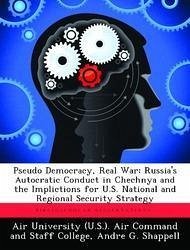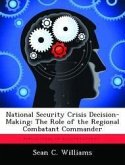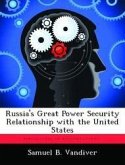Now that the Cold War is over the common assumption is that the threat to the United States and its Western allies from the former Soviet Union is gone. Russia, many Americans have naively assumed, has adopted a democracy modeled on that of the United States. The old enemy has therefore become a new friend. Accordingly, the substantial Cold War-era defense budgets designed to equip the United States Armed Forces for countering the Soviet threat are also gone, the money having been shifted to other priorities. New force structures, defense postures, and security strategies suggest that the United States assumes since Russia is now a fellow democracy, it will necessarily favor adjudication and bargaining over violence to resolve future conflicts. However, evidence of Russian behavior in the build-up to, and conduct of the wars in Chechnya suggests that the applicability of the democratic peace argument favored by American idealists is questionable. The Chechen case study indicates that by Western standards Russia's democracy is at best immature, and at worst non-existent. Thus, if the means with which Russia resolves domestic disputes is any indication of how they will choose to resolve international disputes, there is cause for concern. Therefore, the Western world's excitement over Russia's supposed transformation from communism to democracy, and from centrally controlled to market-based economics is premature. Consequently, the shift in priorities of the United States' force structures, defense postures, and security strategies could prove dangerous. Working toward the ideal of solid, friendly relations with a Russia that retains significant nuclear weapons capability is wise. Doing so under the expectation that they will act like a Western-style democracy is not. More careful thought on the part of our national security planners would be prudent.
Hinweis: Dieser Artikel kann nur an eine deutsche Lieferadresse ausgeliefert werden.
Hinweis: Dieser Artikel kann nur an eine deutsche Lieferadresse ausgeliefert werden.








